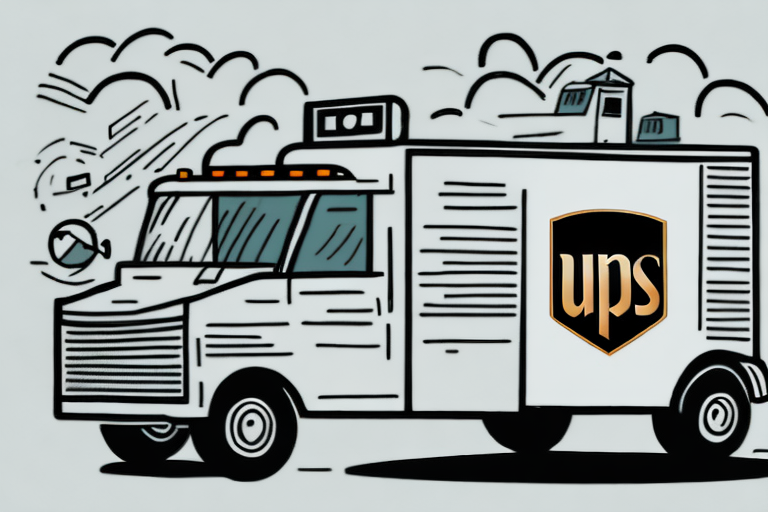Importance of Timely Deliveries
In the realm of logistics, timing is crucial. For both businesses and individuals, late package deliveries can lead to a cascade of negative outcomes. According to a 2023 Statista report, businesses experience a 15% increase in customer complaints due to delayed shipments. Understanding the significance of timely deliveries helps in mitigating risks associated with late shipments.
Impact on Business Operations
For businesses, especially online retailers, timely deliveries are a cornerstone of customer satisfaction. A delayed package can result in:
- Missed sales opportunities
- Negative customer reviews
- Loss of repeat customers
Maintaining a reputation for reliable delivery fosters customer loyalty and enhances brand reputation.
Cost Implications of Late Deliveries
Late deliveries can incur additional costs such as refunds, discounts, and expedited shipping fees. These unexpected expenses can erode profit margins, making it essential for businesses to prioritize on-time deliveries.
UPS Delivery Guarantees and Policies
UPS offers a range of delivery guarantees tailored to different shipping needs. Understanding these guarantees is vital to set accurate delivery expectations and to know when compensation is applicable.
Available Delivery Services
- Next-Day Air: Guarantees delivery by 10:30 a.m. the next business day.
- 2nd Day Air: Ensures delivery within two business days.
- Ground Service: Standard delivery with no specific time guarantee.
Conditions and Limitations
UPS delivery guarantees are subject to specific conditions. Factors such as adverse weather, natural disasters, incorrect address information, and other unforeseen circumstances can affect delivery times. It's imperative to review UPS's delivery guarantee policies to understand these limitations fully.
Common Causes of Delivery Delays
Several factors can contribute to delays in UPS deliveries. Being aware of these causes allows customers and businesses to take proactive measures to minimize their impact.
Weather-Related Disruptions
Extreme weather conditions like hurricanes, snowstorms, and floods can disrupt logistics operations, leading to significant delays.
Incorrect Address Information
Providing inaccurate or incomplete address details can result in failed delivery attempts and prolonged transit times.
Customs and International Shipping Issues
For international shipments, customs clearance can pose challenges. Missing documentation or compliance issues can lead to extended delays.
Capacity Constraints During Peak Seasons
During high-demand periods such as holidays, increased shipment volumes can strain UPS's capacity, resulting in slower delivery times.
Legal and Compensation Remedies
If a UPS delivery is late, customers may be entitled to legal remedies and compensation. Understanding your rights and the appropriate steps to take is essential in such situations.
Filing a Claim
Under the Uniform Commercial Code (UCC), a late delivery can be considered a breach of contract, allowing the buyer to seek damages. Claims should be filed within 15-30 days of the delivery date, depending on the service used.
Receiving Compensation
Compensation may come in the form of refunds or credits. UPS has specific guidelines based on the service level and nature of the shipment. Reviewing UPS's claim policies is advisable to ensure eligibility.
Contacting Customer Service
Before pursuing legal action, it's often beneficial to contact UPS customer service. They may offer solutions such as expedited shipping for future orders or partial refunds as goodwill gestures.
Tracking and Managing Your Packages
Effective package tracking is vital in managing deliveries and addressing potential delays proactively.
Using UPS Tracking Tools
UPS provides robust tracking tools that allow customers to monitor their packages in real-time. By entering the tracking number on the UPS website, you can view the package's current status and estimated delivery time.
UPS My Choice
UPS My Choice offers enhanced tracking features, including delivery alerts and the option to reroute packages to different addresses. This service is particularly useful for recipients who may not always be available to receive deliveries.
Proactive Monitoring
Regularly checking your package's status enables you to react promptly to any delays. If an issue arises, contacting UPS immediately can help mitigate the impact on delivery times.
Tips to Prevent Late Deliveries
Implementing best practices can significantly reduce the risk of experiencing late deliveries with UPS.
Verify Address Accuracy
Ensure that both the sender's and recipient's addresses are correct and complete. Double-checking this information can prevent delivery mishaps.
Choose the Right Service Level
Select a UPS service that aligns with your delivery time requirements. If a specific delivery time is critical, opting for a service with a guaranteed delivery window is advisable.
Use UPS Pickup Services
Utilizing UPS's pickup services can be more reliable than arranging carrier pickups, which may be subject to delays or missed pickups.
Proper Packaging
Packaging items securely using sturdy materials reduces the risk of damage during transit, which can lead to delays. Clearly labeling packages with accurate addresses also facilitates smooth deliveries.
Alternatives to UPS for Package Delivery
If UPS's delivery reliability does not meet your expectations, there are several alternative shipping services to consider:
- FedEx: Known for its extensive global network and reliable express services.
- DHL: Offers robust international shipping solutions with tailored services.
- United States Postal Service (USPS): Provides cost-effective shipping options, especially for smaller packages.
Comparing the service levels, costs, and delivery guarantees of these providers can help you select the best fit for your shipping needs.
Conclusion
Timely package delivery is essential for maintaining customer satisfaction and operational efficiency, whether for businesses or individuals. Understanding UPS's delivery guarantees, being aware of common delay factors, and knowing how to take corrective actions can help mitigate the impact of late deliveries. Additionally, exploring alternative shipping options can provide more reliable solutions tailored to your specific needs. By taking proactive measures, you can ensure successful and on-time deliveries, fostering trust and reliability in your shipping processes.






















